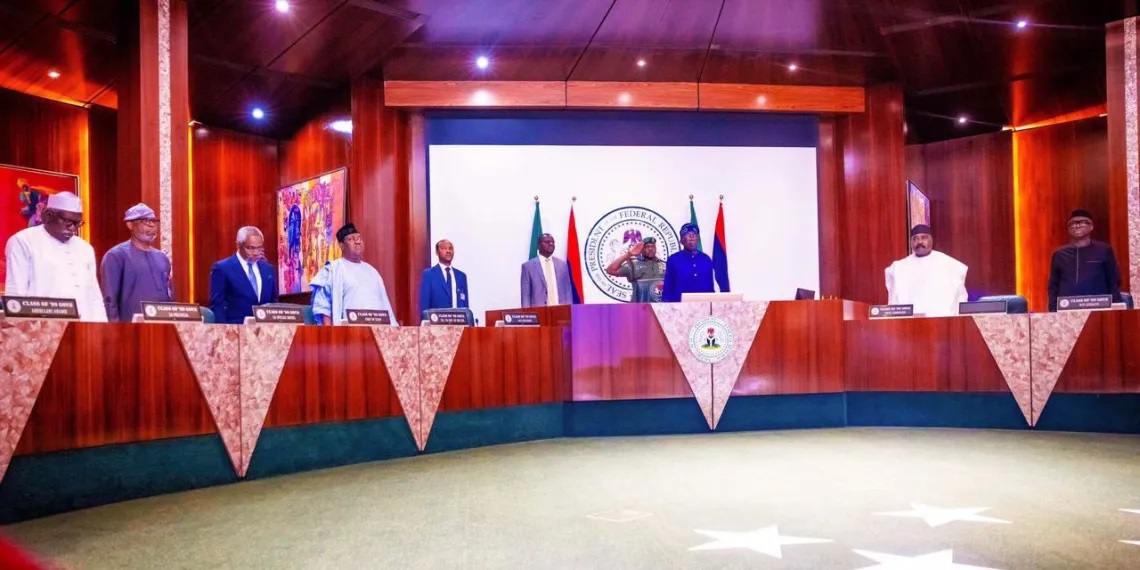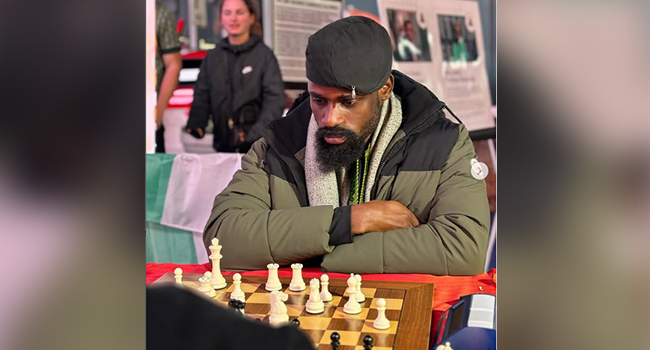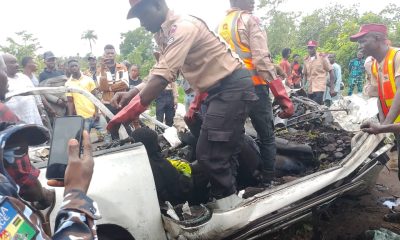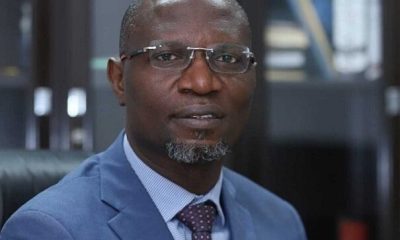News
FEC approves roads construction in Kebbi, Sokoto, Lagos, Abia, others

The Federal Executive Council (FEC) approved the construction of 14 roads and bridges, which were badly affected by floods, in Ekiti State, Adamawa, Kebbi and Enugu states.
Works Minister David Unahi said this while addressing State House correspondents after the FEC meeting.
He said the others are in Cross River State, Ondo State, Osun State, Ebonyi, Abia and Imo states.
He said the roads were awarded, in addition to a contract for the repair and rehabilitation of Gamboru Bridge along Gambor-Ngala/Kala-Balge Road in Borno.
The minister said FEC also approved a new contract for the rehabilitation of Maraban-Kankara/Funtua Road in Katsina State and the construction of a 258-kilometer three-lane carriageway, a component of the 1,000 km Sokoto/Badagry Super-highway, Section 2, Phase 2A.
Likewise, he said FEC approved the contract for the construction and dualisation of Afikpo-Uturu-Okigwe Road in Ebonyi, Abia and Imo States (Section 2).
He said FEC similarly approved the contract for Bodo-Bonny Road in Rivers, to be executed by Julius Berger.
“FEC approved additional N80 billion to complete that project, bringing the total cost to N280 billion.
“The next is the Third Mainland Bridge, which was executed under emergency work,” he said.
He said at the time the present government assumed office, the Third Mainland Bridge was a nightmare.
“The deck had pavement differential of over one foot; that was causing a lot of accidents and hold up, and constituting dead load to the Third Mainland Bridge.
“So, that has been done and it also extended to Falamo and Queens Drive. It came with solar light, CCTV cameras, and relief stations, to eliminate road blockage,” he said.
He explained that when he came on board, Julius Berger sought to review the entire project.
“Don’t forget that the initial cost of the projects was N155 billion and the past administration reviewed it to N797 billion.
“Berger insisted that the reviewed contract sum should to N1.5 trillion. We didn’t have that money and the Coordinating Minister for the economy and myself went through the road and had strategic meeting with Berger,” said Umahi.
He said he eventually sought the approval of the president to break the projects into three so that two sections could be done on tax credit and Julius Berger could do one.
“So, the first section is 38 kilometre. It has not been brought to Council. It’s to be done with concrete.
“The second section is to be done by Berger and that is 82 kilometers by two, and it’s to be done with asphalt that they have been working with and the third section, which is just 17 kilometres is to be done on concrete,” he said.
He said FEC approved that of Julius Berger for a total contract sum of N740 billion. However, he said the other two were not presented for approval.
“If you remove approximately N400 billion paid by the last administration, then what is left is about N340 billion. That is what the contract sum for the 164 kilometre will be and that’s what FEC approved today,” Mr Umahi said.
The minister said the service lane on Lekki Deep Seaport road was approved for construction by FEC.
Lastly, he said he discovered that over 3,000 fuel trucks queuing to lift fuel at Dangote Refinery were all parked on the newly constructed Lekki-Calabar coastal highway.
“Technically and by design, the roads were never built for static loads, and so it has a lot of effects,” he said.
He said FEC approved that the federal government’s land in the area should be concessioned, so that concessioners could build a park.
“It’s a park that will be tolled so that all the trucks can safely park over there and the pavement of such a park is quite different from the pavement of the road,” said Mr Umahi.
(NAN)
News
Celebrity boxing: Speed Darlington wants rematch after losing to Portable

By Kayode Sanni-Arewa
Nigerian singer Speed Darlington is calling for a rematch against Portable after losing to him in a celebrity boxing match.
Speed Darlington was knocked out in the second round, and he’s unhappy about the outcome.
In a video, he claimed Portable didn’t deserve the win and the prize money, saying he had plans to use the money to build a swimming pool for his community in Imo State.
Portable, I want a rematch. E dey pain me say you dey carry all that money dey go. E dey break my heart.
” I want a rematch. It’s so unfair. You have up to two experience before me and you fight. I never enter ring before. I did not come from poverty,” he said.
“You don’t deserve that money. E dey pain me. I want to build swimming pool for my villagers. I need a rematch, Portable”, he said.
According to Speed Darlington, Portable had an unfair advantage due to his experience, accusing him of using supernatural means to win the fight.
He also claimed he suffered a shoulder injury during the match despite not feeling tired.
Speed Darlington, who wants a rematch, said he needs 30 days to prepare better
News
Israel’s remote controlled bulldozers breaking ground in Gaza war

At first glance, there is nothing unusual about the bulky bulldozer turning up soil at a testing site in central Israel, but as it pulled closer it became clear: the driver’s cabin is eerily empty.
This is the Robdozer, a fortified engineering vehicle manned remotely, and in this case operated from a military expo halfway across the globe in Alabama.
Army engineers and military experts say that the Robdozer — the robotic version of Caterpillar’s D9 bulldozer — is the future of automated combat.
The Israeli military has used D9 for years to carry out frontline tasks like trowelling roads for advancing troops, removing rubble and flattening terrain.
But since war in Gaza broke out in October 2023 and later in Lebanon, the Israeli military has increasingly deployed this robotic version in a bid to enhance its field operations and reduce the risks to its troops.
“The idea is to eliminate the person from the cockpit of the dozer,” said Rani, whose team at the state-owned Israel Aerospace Industries developed the Robdozer.
An unmanned D9 bulldozer digs up a field during a demonstration to the press at the Israel Aerospace Industries (IAI) quarters near Tel Aviv on March 26, 2025. Israel’s increasing use of advanced technology on the battlefield, from air defence systems to a broad range of AI-driven intelligence tools, has been well-documented but also criticised for inaccuracies, lack of human oversight and potential violations of international law. (Photo by GIL COHEN-MAGEN / AFP)
During the Gaza war, the military has increasingly opted for the unmanned version, which can carry out a full range of tasks “even better than a human”, said Rani, using his first name only for security reasons.
While such vehicles and other systems are currently operated by humans, future versions could be autonomous, raising ethical and legal concerns over the unchartered future of warfare being shaped by the Israeli military in the Gaza war.
‘Changing the paradigm’
Israel’s increasing use of advanced technology on the battlefield, from air defence systems to a broad range of AI-driven intelligence tools, has been well-documented but also criticised for inaccuracies, lack of human oversight and potential violations of international law.
Analysts say the growing Israeli deployment of the Robdozer reflects broader global trends towards automation in heavy combat vehicles, like remote-controlled personnel carriers that operate much like drones.
An Israeli military official, who requested anonymity to discuss sensitive matters, told AFP that the army has been using “robotic tools for over a decade, but in very small numbers. Now it is being used in large-scale warfare”.
News
70-hour Chess Marathon: Onakoya reportedly breaks record set by Norwegians

Nigerian chess sensation and founder of Chess in Slums Africa, Tunde Onakoya, has broken the chess marathon record of 61 hours, 3 minutes, and 34 seconds, set by two Norwegian players, Hallvard Haug Flatebø and Sjur Ferkingstad, in June 2024.
Onakoya and his chess partner, Shawn Martinez, are currently aiming to complete a 70-hour chess marathon in Times Square, New York.
The marathon, a four-day non-stop gameplay, started on April 17.
In a post shared on X shortly after surpassing the current record, he expressed fulfillment and called for action to educate and create opportunities for street children in Nigeria.
For all the dreamers! We’ve officially BROKEN THE RECORD with my brother,” he wrote.
Although the official confirmation from Guinness World Records is still being awaited, Nigerians and chess lovers from different parts of the world have congratulated the chess master on his latest achievement.
-

 News22 hours ago
News22 hours agoBLACK EASTER: Over 150 massacred in Plateau, Benue
-

 News18 hours ago
News18 hours agoDouble tragedy: Father, three children, maid killed in Osun road crash
-

 News18 hours ago
News18 hours agoSAD! SEC DG says “we can’t recover N1.3trn Nigerians lost to CBEX ponzi scheme”
-

 News16 hours ago
News16 hours agoNDLEA nabs bandits supplier with drugs concealed in private part(Photos)
-

 Metro21 hours ago
Metro21 hours agoShock as 2 naked lovers found dead in Kogi
-

 News22 hours ago
News22 hours agoIMF expresses concern over high poverty rate, food insecurity in Nigeria
-

 Economy22 hours ago
Economy22 hours agoVolvo announces termination of 800 U.S. workers, cites tariff, market decline
-

 Sports11 hours ago
Sports11 hours agoBREAKING! Arsenal hammer relegation Bound Ipswich 4-0






